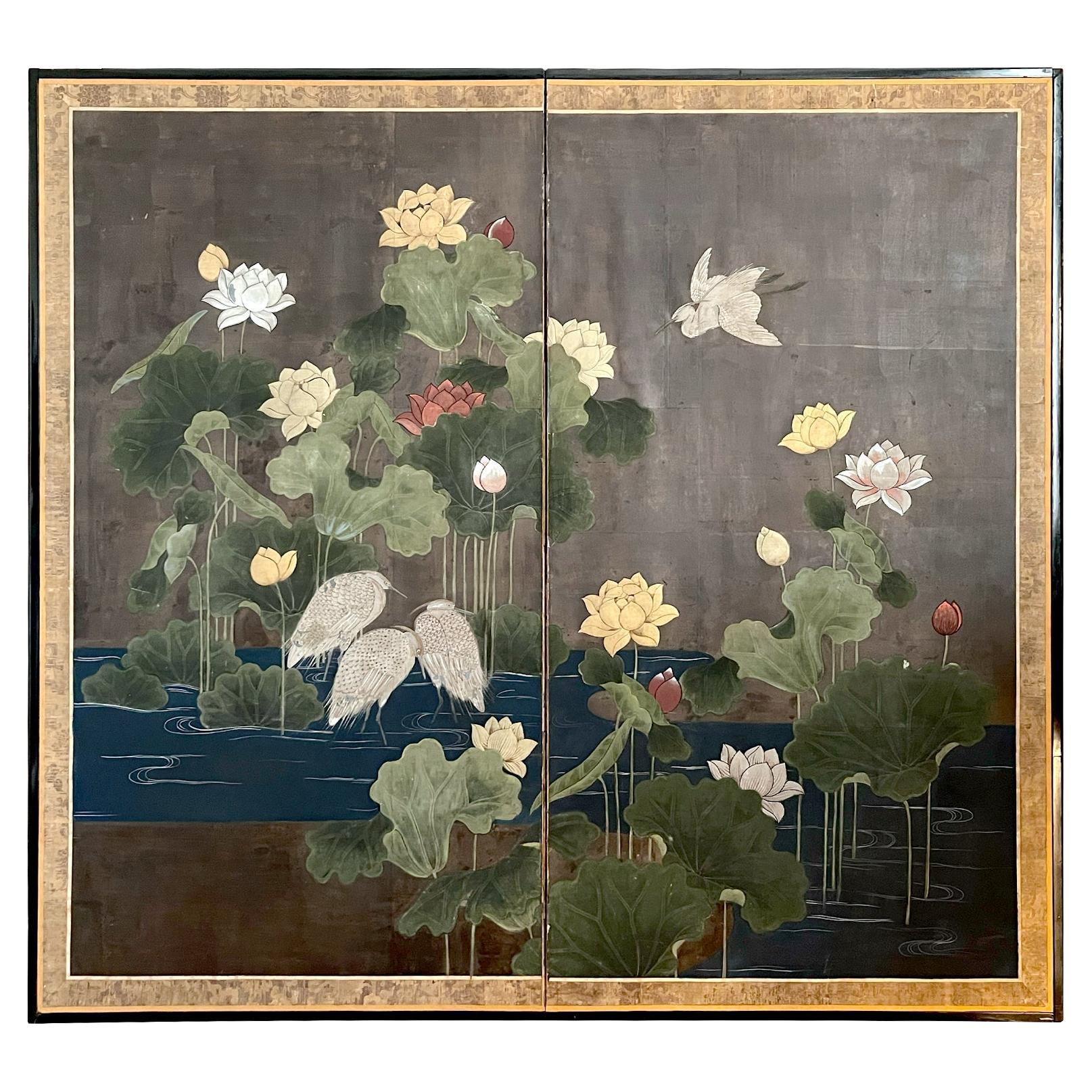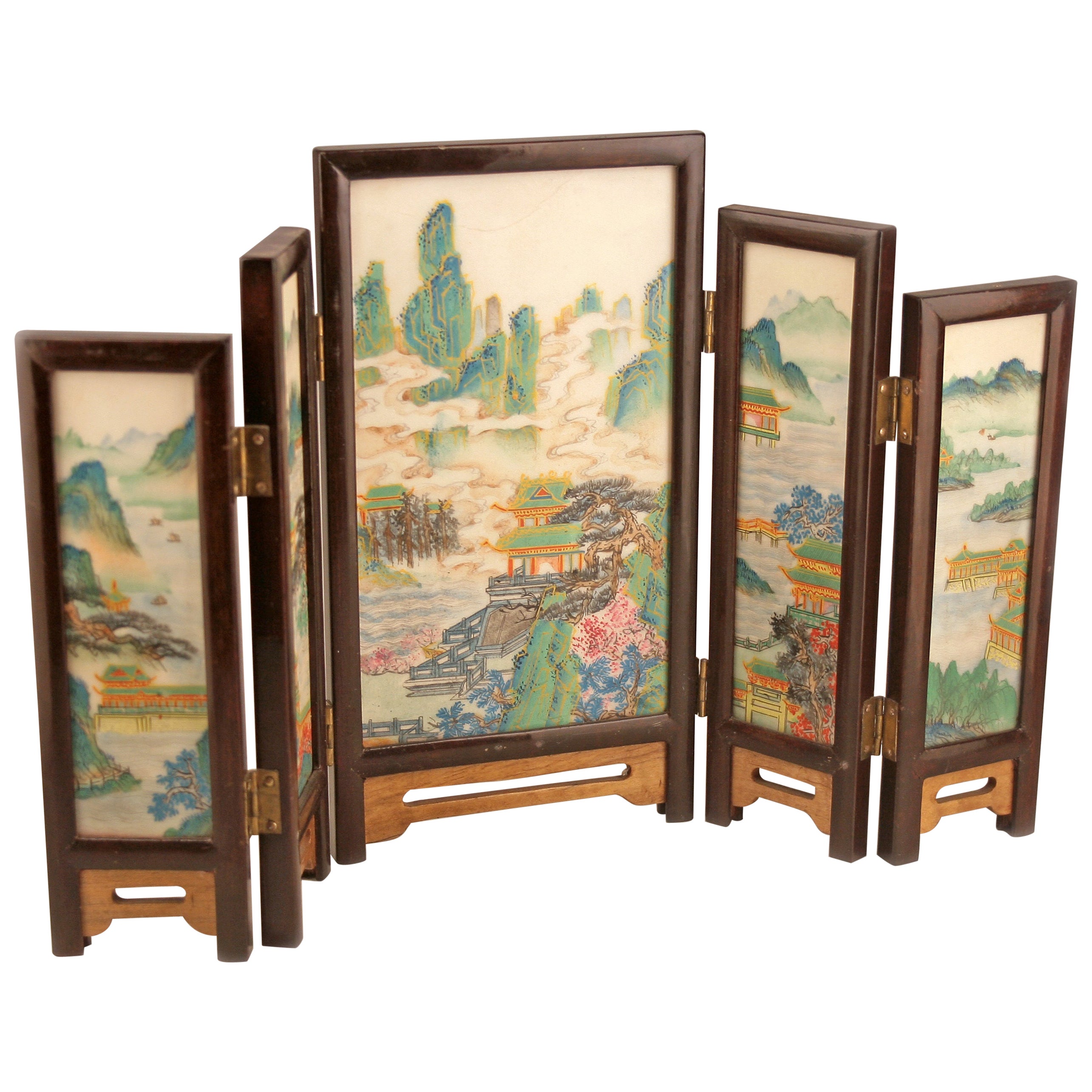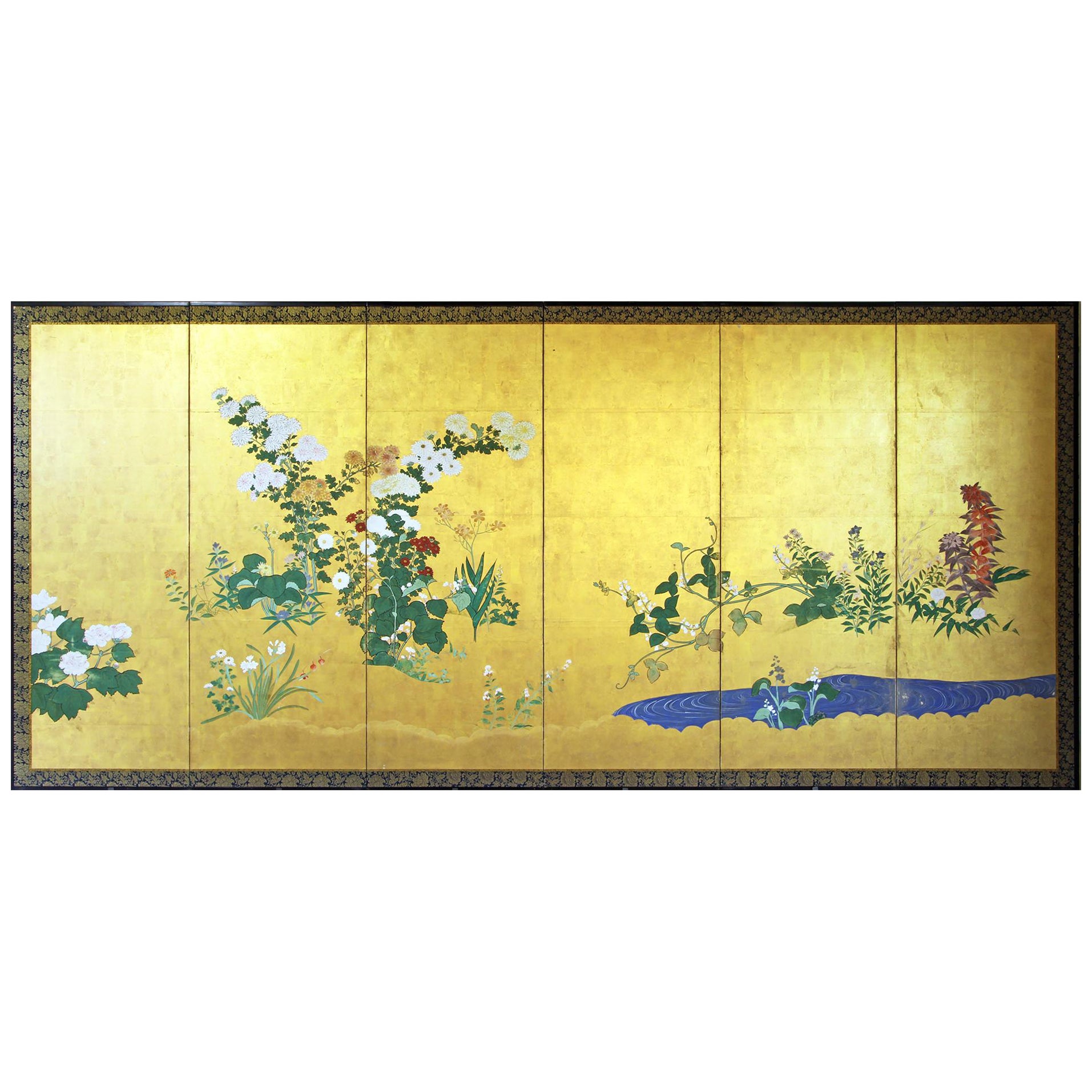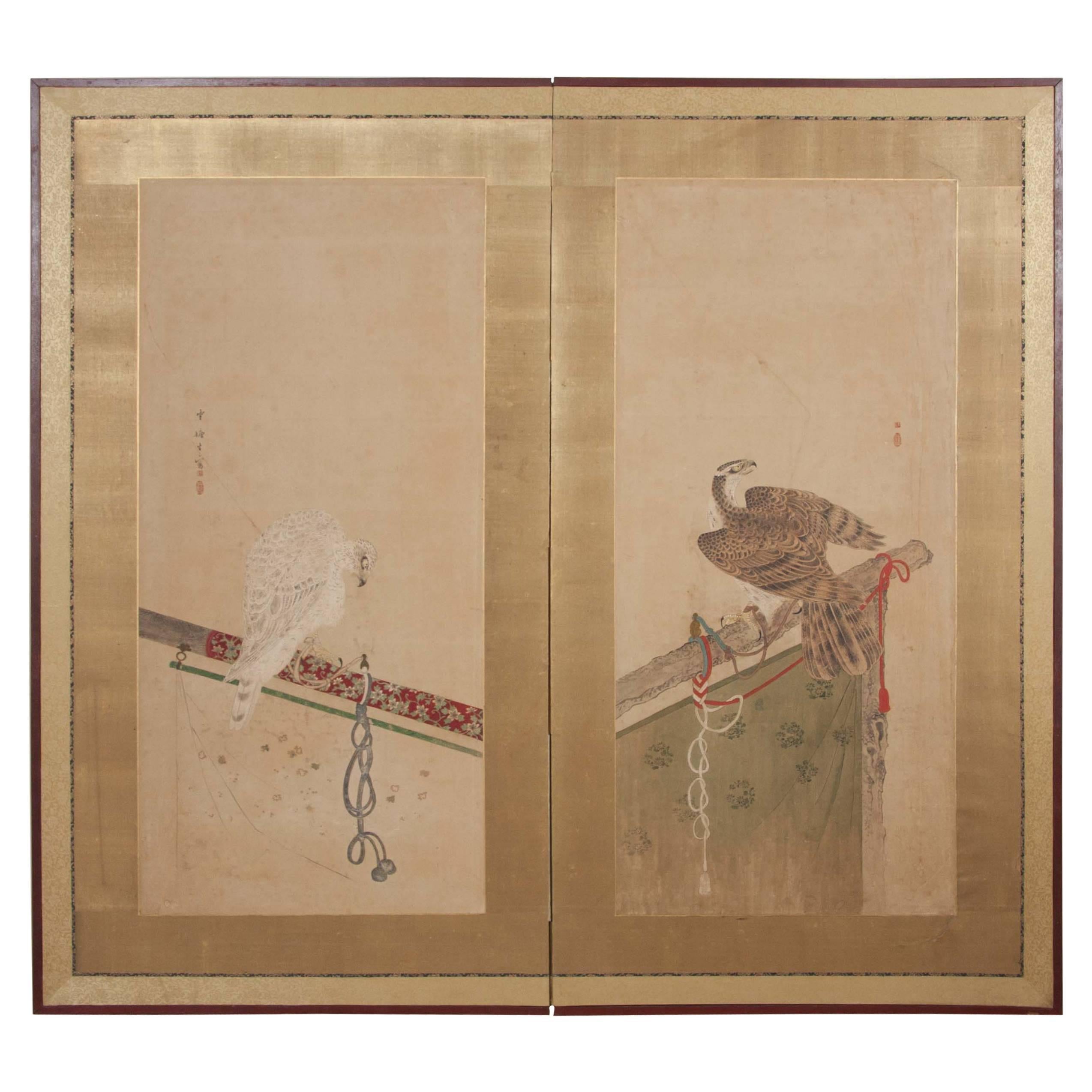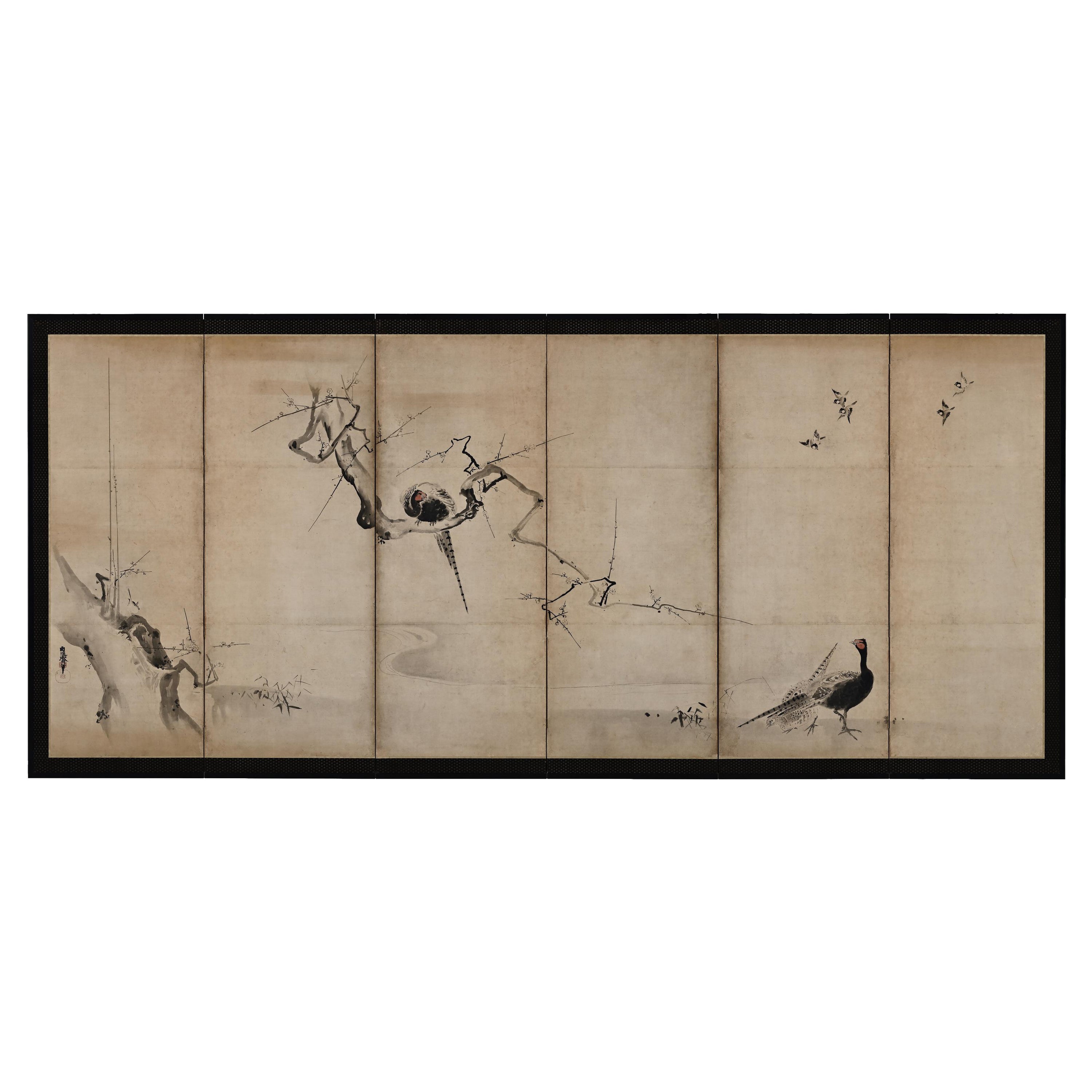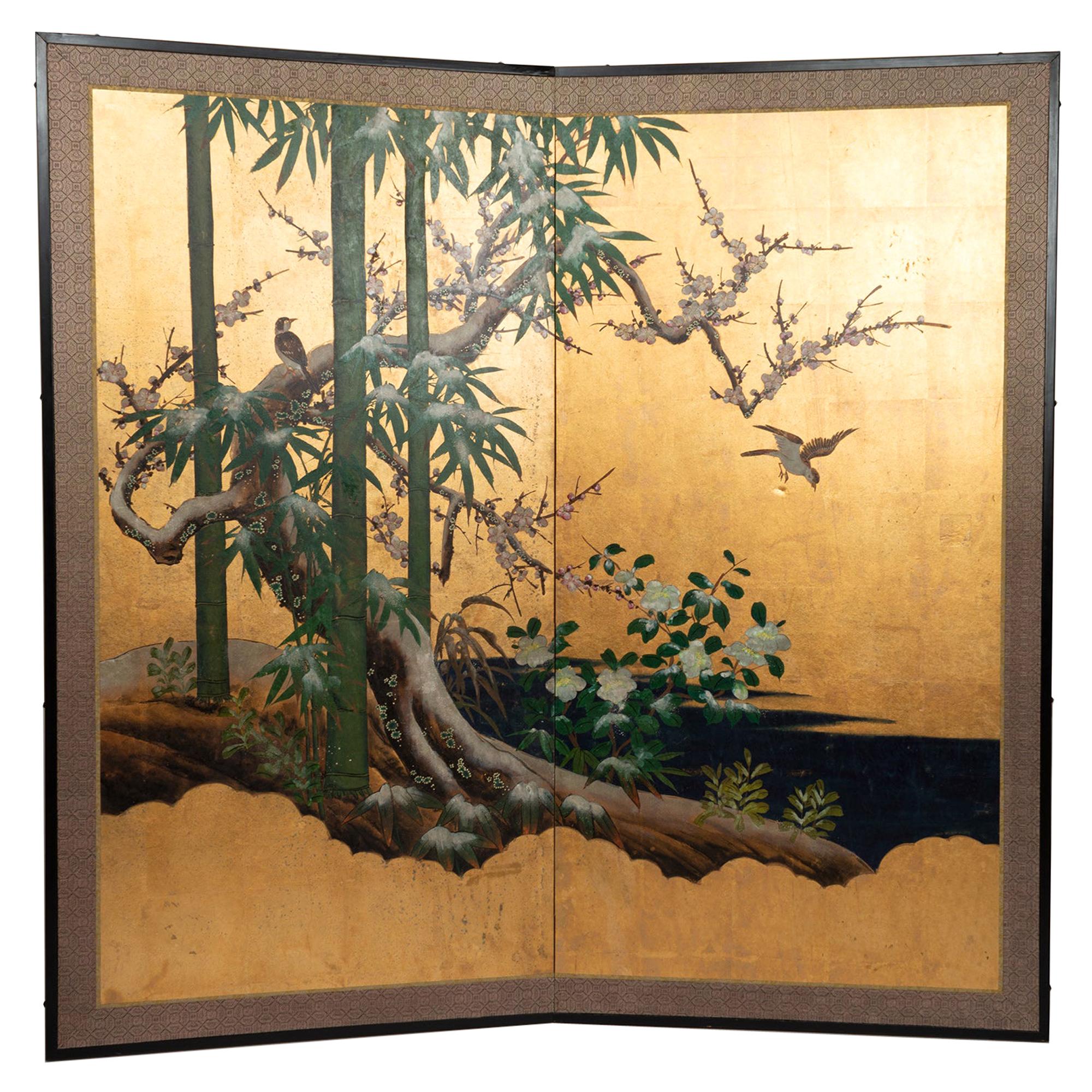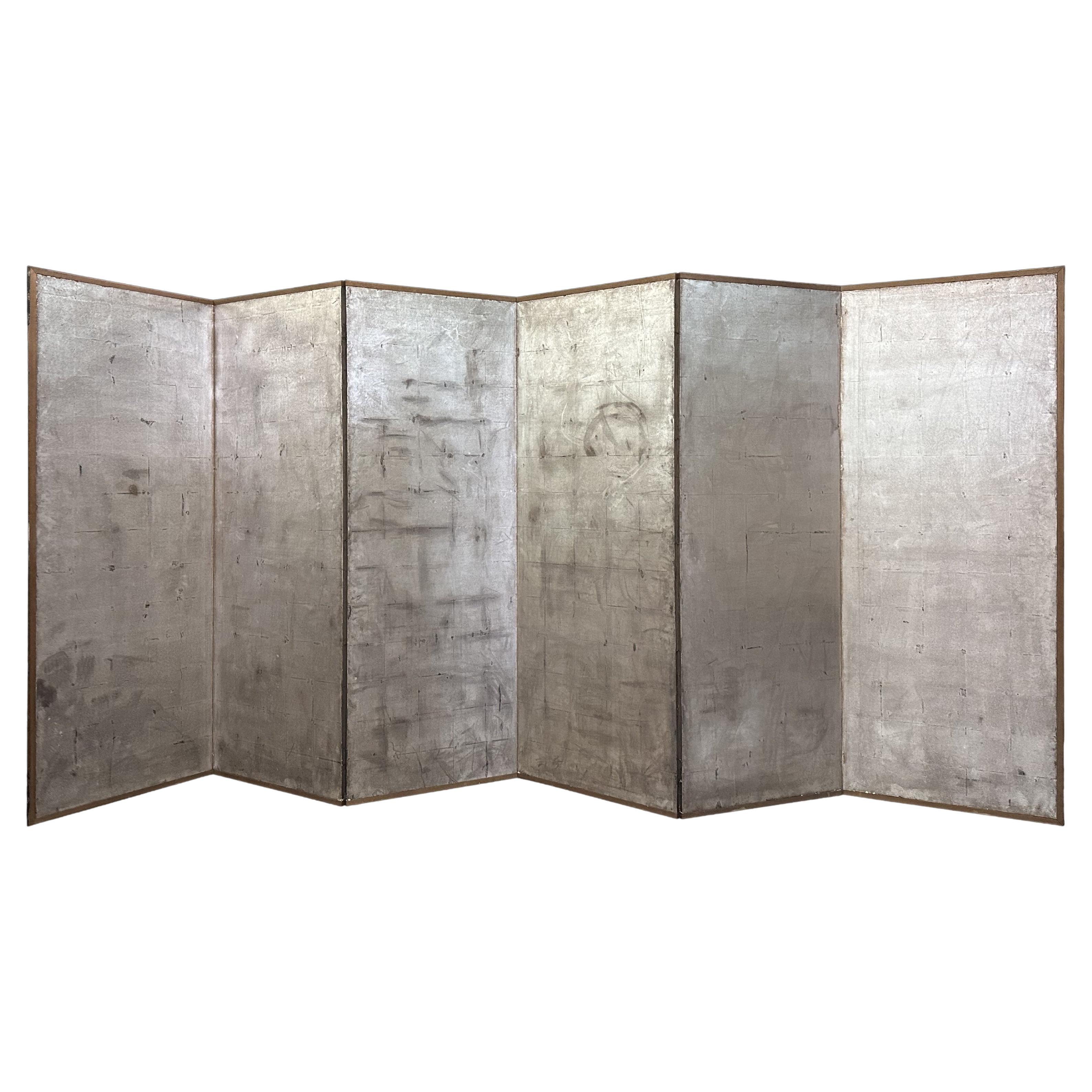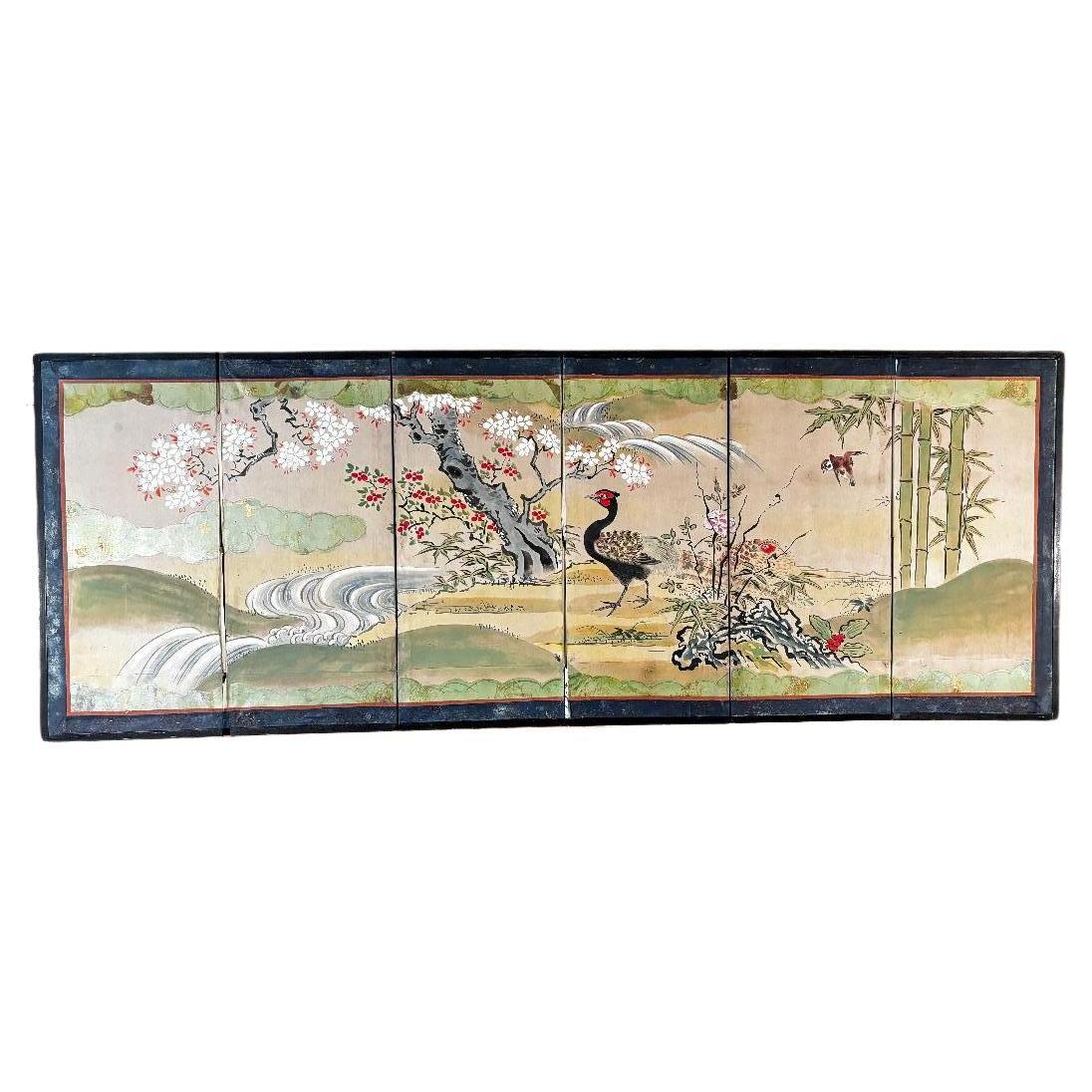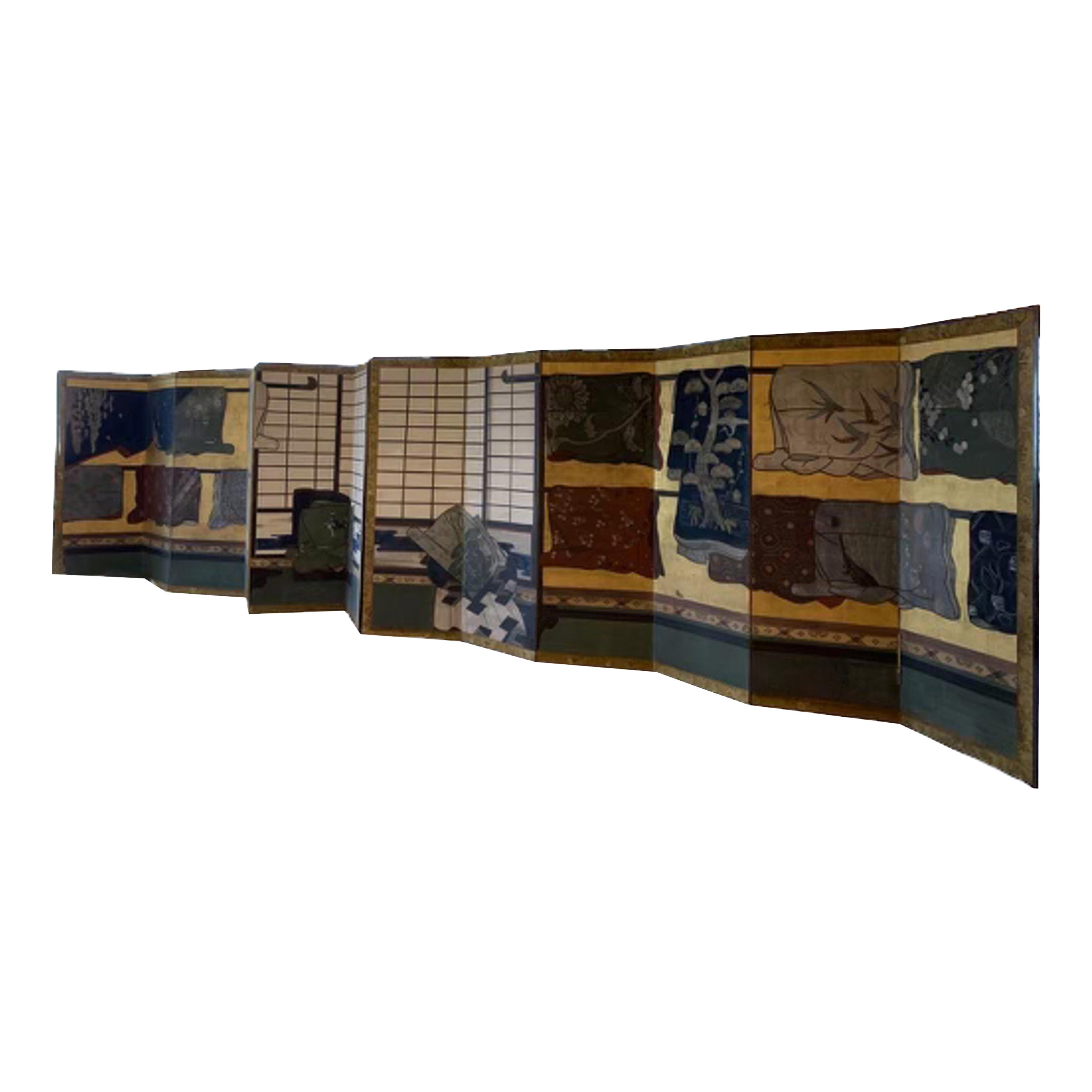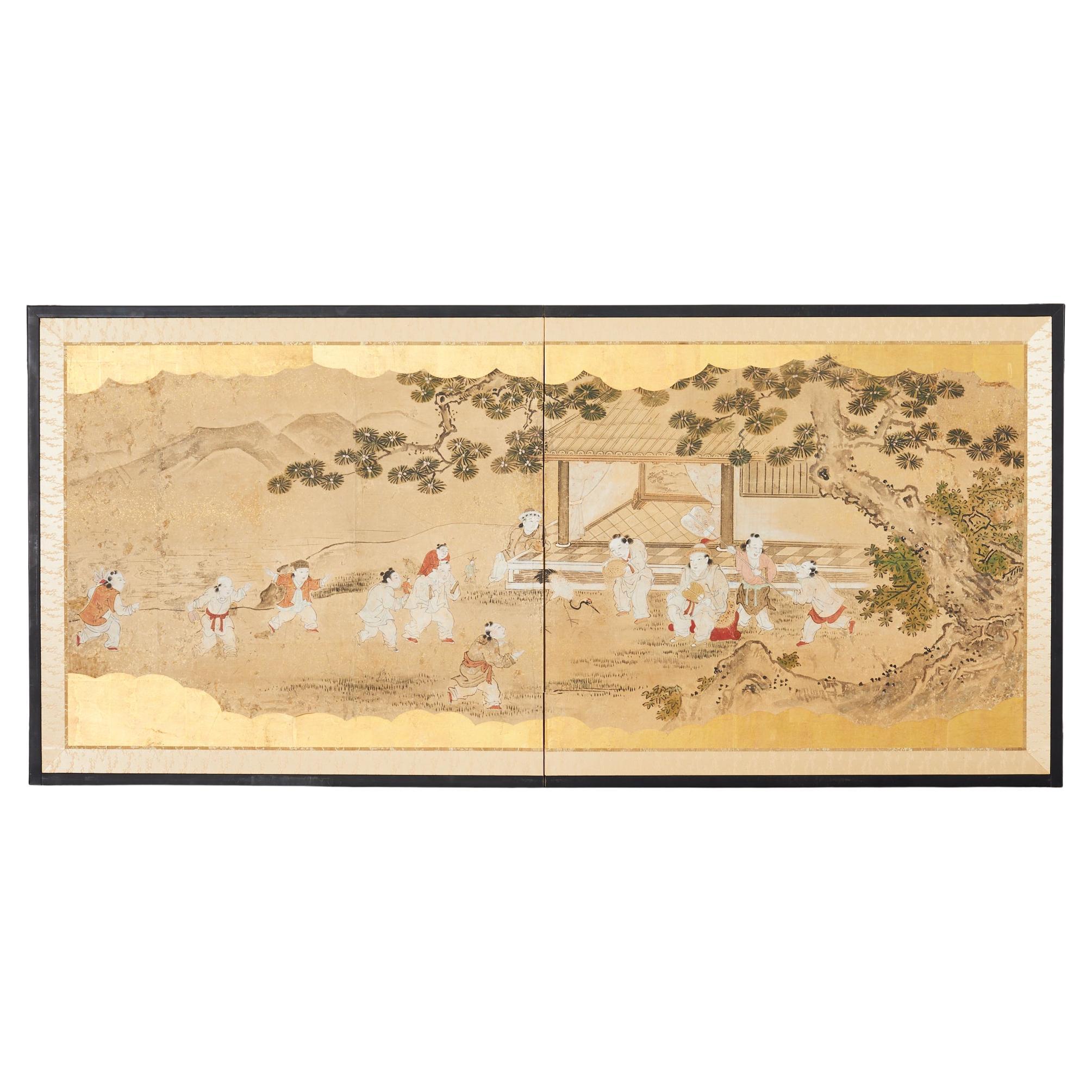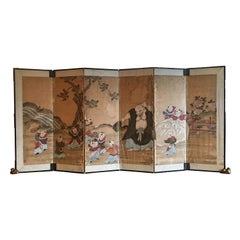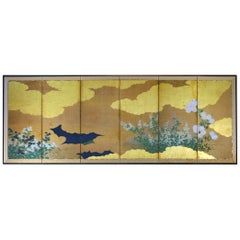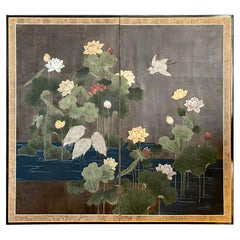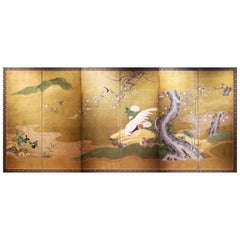
Early 19th, Japanese Folding Screen with Birds and Plum Trees, Edo period
View Similar Items
1 of 9
Early 19th, Japanese Folding Screen with Birds and Plum Trees, Edo period
About the Item
- Dimensions:Height: 67.72 in (172 cm)Width: 145.67 in (370 cm)Depth: 0.79 in (2 cm)
- Style:Edo (Of the Period)
- Materials and Techniques:
- Place of Origin:
- Period:
- Date of Manufacture:1820
- Condition:Wear consistent with age and use.
- Seller Location:Central Hong-Kong, HK
- Reference Number:Seller: LS1211stDibs: LU2554310725543
You May Also Like
- Japanese Six Panel Screen with Hotei, Edo Period, Early 19th CenturyLocated in Austin, TXA delightful Japanese six panel painted paper screen featuring the beloved figure Hotei, Edo Period, early 19th century. Hotei, called Budai in China, and known as the Laughing Buddha or Fat Buddha in the West, is considered to be an emanation of Maitreya, the Buddha of the Future. In Japan, he also holds a special place as one of the Seven Lucky Gods, being the god of fortune, and protector of children. He is always portrayed as a mirthful and corpulent man, dressed in loose robes that show off his round belly. He carries a sack with him, said to be filled with treasure. As the protector of children, he is often portrayed with them playing on or around him, as he is here. The children portrayed in this screen are dressed in Chinese style clothing...Category
Antique Early 19th Century Japanese Edo Paintings and Screens
MaterialsSilk, Paper
- Edo Period 19th Century Japanese Folding Screen Six Panels Flowers on Gold LeafBy Rimpa SchoolLocated in Brescia, ITClouds of gold, water and many colorful flowers: Japanese six-panel folding screen by Rimpa School. Hand painted with rice mineral pigments and inks on rice paper and gold leaf.Category
Antique Early 19th Century Japanese Edo Paintings and Screens
MaterialsGold Leaf
- Japanese Folding Screen "Byobu" from the Edo PeriodLocated in Paris, FRJapanese Screen "Byobu", from the Edo period (circa 1800), with two leaves in silk paper mounted on canvas with leather background. Beautiful floral decoration "Rimpa" with wading bi...Category
Antique Early 19th Century Japanese Edo Paintings and Screens
MaterialsCanvas, Paper
- 19th C. Edo-Meiji Period Japanese Painted Five-Panel Folding Miniature ScreenLocated in North Miami, FL19th century/Edo-Meiji period japanese painted five-panel folding miniature screen By: unknown Material: lacquer, metal, paint, wood Technique: carved, hand-carved, hand-painted, la...Category
Antique 19th Century Japanese Meiji Paintings and Screens
MaterialsMetal
- Edo Landscape Japanese Folding ScreenBy Japanese StudioLocated in Brescia, ITRefined work by a painter from the first half of the 19th century, from the landscape of the "Rinpa" school by a painter from the end of the 18th century, the Rinpa school. Six panels painted in ink on gold leaf and "gofun" on vegetable paper. The flowers are made with the "gofun" technique, natural or pigmented white oyster powder. Rinpa is one of the major historical schools of Japanese painting. The style was consolidated by the brothers Ogata Korin (1658–1716) and Ogata Kenzan (1663–1743). This folding screen has a very clean design that leaves plenty of room for the beautiful golden landscape. It comes flat and you can easily hang it with our hooks. Lucio Morini...Category
Antique 18th Century Japanese Edo Paintings and Screens
MaterialsGold Leaf
- 17th Century Japanese Screen. Ink Plum Tree & Birds by Kano Naonobu.Located in Kyoto, JPKano Naonobu (1607-1650) Plum Tree and Birds Six-fold Japanese Screen. Ink and slight color on paper. In this evocative ink work spread over a six-panel folding screen, we see the consummation of the elegance and refinement of the Edo Kano school. This 17th century screen is a rare surviving example of a large-scale bird and flower painting by Kano Naonobu, the younger brother of Kano Tanyu...Category
Antique 17th Century Japanese Edo Paintings and Screens
MaterialsWood, Paper


